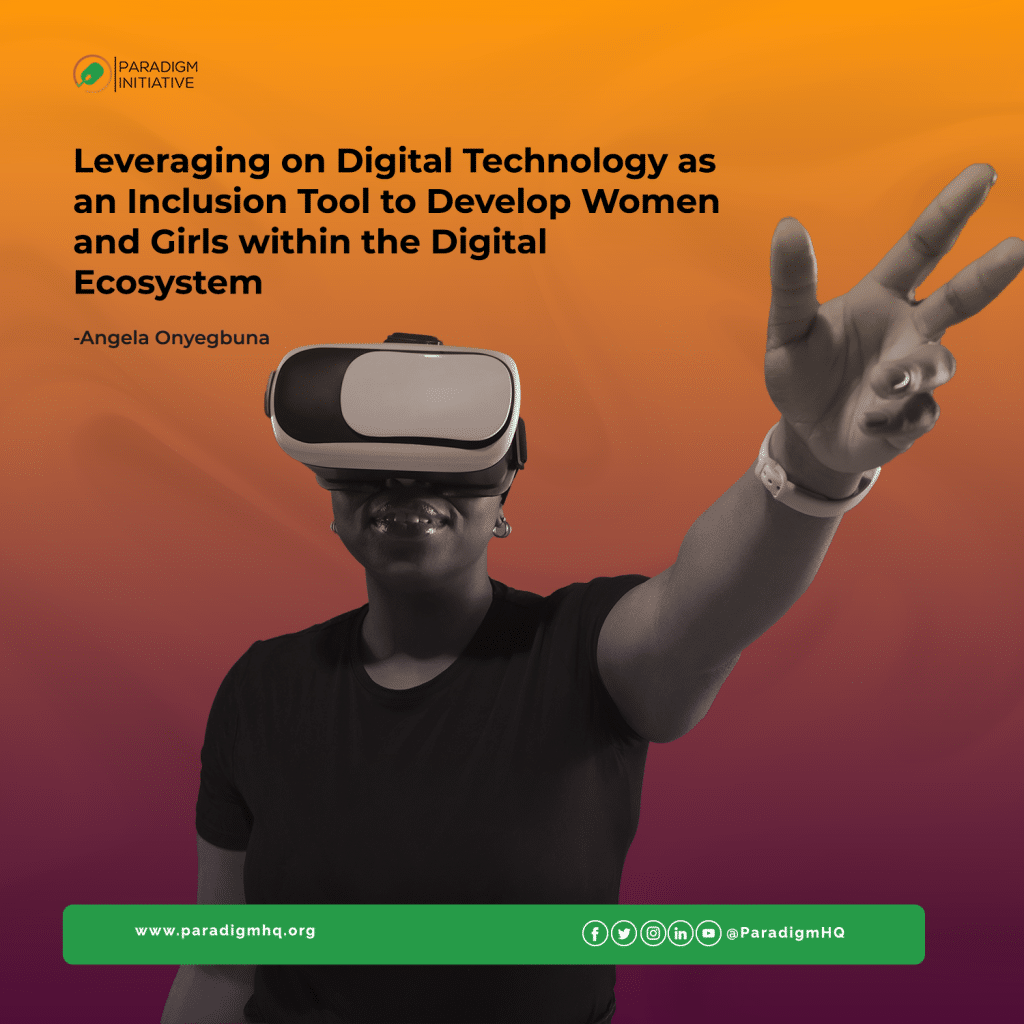The fifth UNs Sustainable Development Goal, Gender Equality, calls for the ending of all discrimination against women and girls, stating gender equality is not only a human right crucial for a sustainable future but a fundamental human right.
Consequently, when women and girls are empowered, it helps economic growth and development. The digitalized world presents opportunities for the empowerment and inclusion of women and girls at all levels. Utilizing digital technologies properly under the right circumstances will help overcome cultural, social, and gender barriers to inclusion and bridge the gender gap globally. If applied efficiently and appropriately in sectors such as education, finance, and governance, digital technology has the potential to close the gender gap.
Education is an essential step in achieving digital inclusion. According to Nelson Mandela, “Education is the most powerful weapon you can use to change the world.” The gender gap witnessed in education which affects women across the globe, especially in developing countries, can’t be resolved by the traditional education system, due to its limitations in flexibility and source of learning material. To curb this situation, the use of digital technology provides an opportunity for flexibility in learning and unlimited accessibility to information and learning materials beyond what is available in the immediate environment. Furthermore, Through the use of digital technologies, there will be more reach in educating people as advances in digital technology have opened up many avenues of learning. Technology has made information accessible, transmittable from anywhere to all groups of people.
When it comes to financial inclusion, digital technologies have a vital role to play, as studies have shown that ICT has a significant impact on finance and economic growth, as can be seen in the report by Organisation for Economic Cooperation and Development (OECD) titled: The Economic Impact of ICT: Measurement, Evidence and Implications. In addition, the International Telecommunication Union(ITU) annual facts and figures 2021 edition, indicate the impact of ICT in the distribution of economies according to the proportion of their populations having ICT skills. With these reports, it’s clear that digital technologies have a significant impact on improving employment and productivity rates.
Unfortunately, the financial inclusion gender gap persists because women are digitally excluded, which automatically translates to exclusion from lucrative employment and business opportunities. Empowering women with ICT enabling skills will significantly resolve traditional and socio-cultural issues, related to time and societal constraints not favorable to women. In most developing countries, household and family responsibilities are placed on women, not allowing women to work and engage in business. In such situations, ICT can be used to create a better work-life balance for women, through increased remote working opportunities and flexibility for women entrepreneurs to do business from home and reach a wider range of customers online. This will increase the efficiency and participation of women in financial and economic business activities.
Empowering women educationally and financially would boost their confidence to go for leadership positions. Having women involved equally in decision-making positions, most especially in politics, contributes to paying attention to women’s issues. Female leaders can change social and gender norms through legislation and policies. Due to the present underrepresentation of women in decision-making positions, policies for gender equality can easily be ignored or delayed, for lack of women to advocate and accelerate the implementation of these policies. Without gender-sensitive policies, women will not benefit much from this digitalized world. Therefore, participation in politics is essential for accelerating the inclusion goal actualization. Through the use of ICT channels like Television, radio, and the internet, women in leadership roles can be visible as role models and encourage other women and girls. Women can also speak out and campaign on issues that affect them.
Digital technology is essential to achieve gender equality and the empowerment of all women and girls. This is why digital inclusion for women and girls is necessary to expedite the inclusion goal. Picture a world where women and girls have equal access to technology and are fully equipped with digital skills, certainly the gender equality goal will be achieved.
Written by Angela Onyegbuna

 (2)
(2)
One Response
Women in STEAM initiative is an innovative educational organisation that seeks to empower 1,000,000 girls and young women across Kenya with Digital literacy skills and STEAM education to thrive in 21st century.
We are a registered organisation in Kenya and are empowering girls across with a greater focus on rural areas and urban slums. Looking forward to see how to increase digital tools in our program.